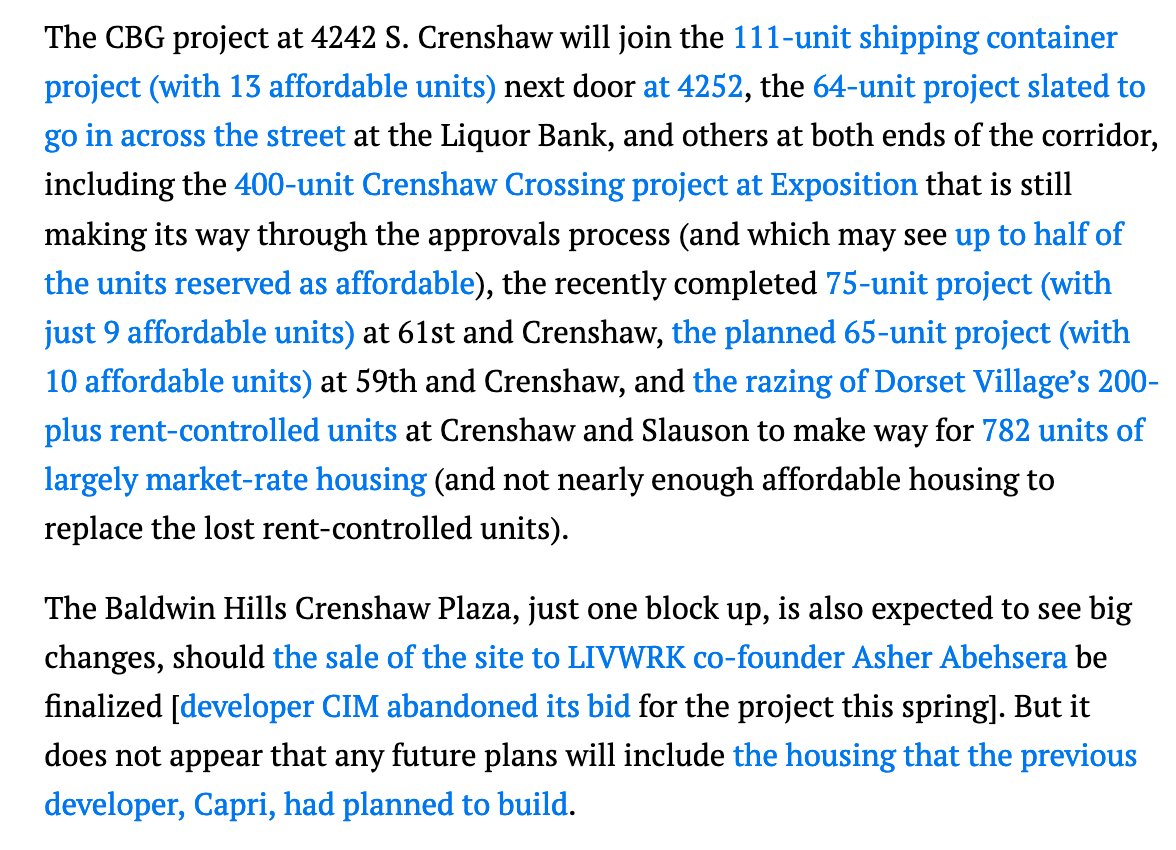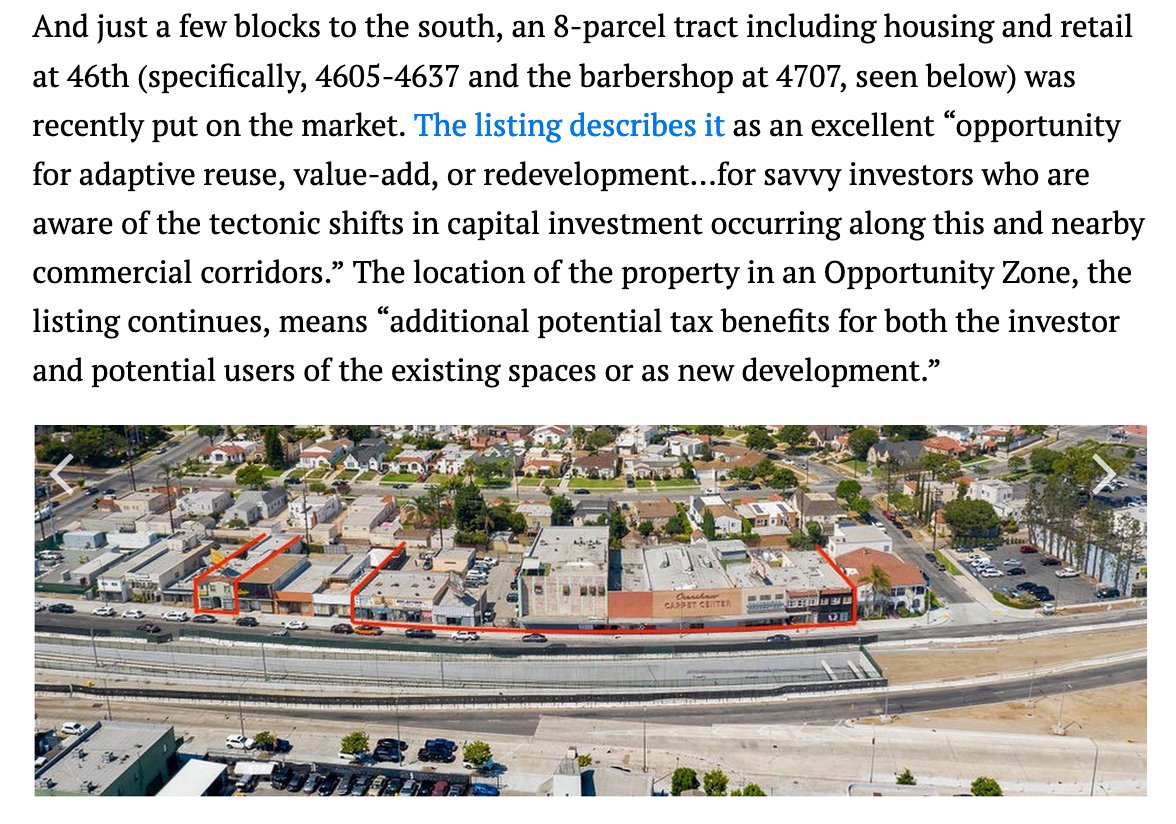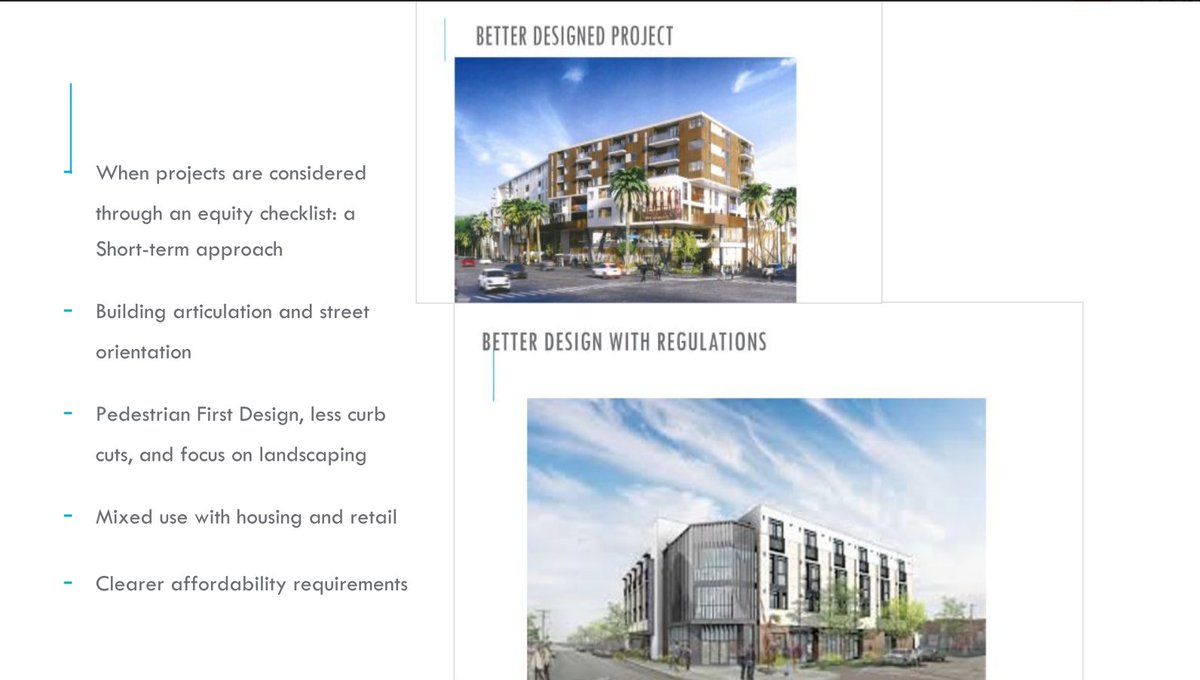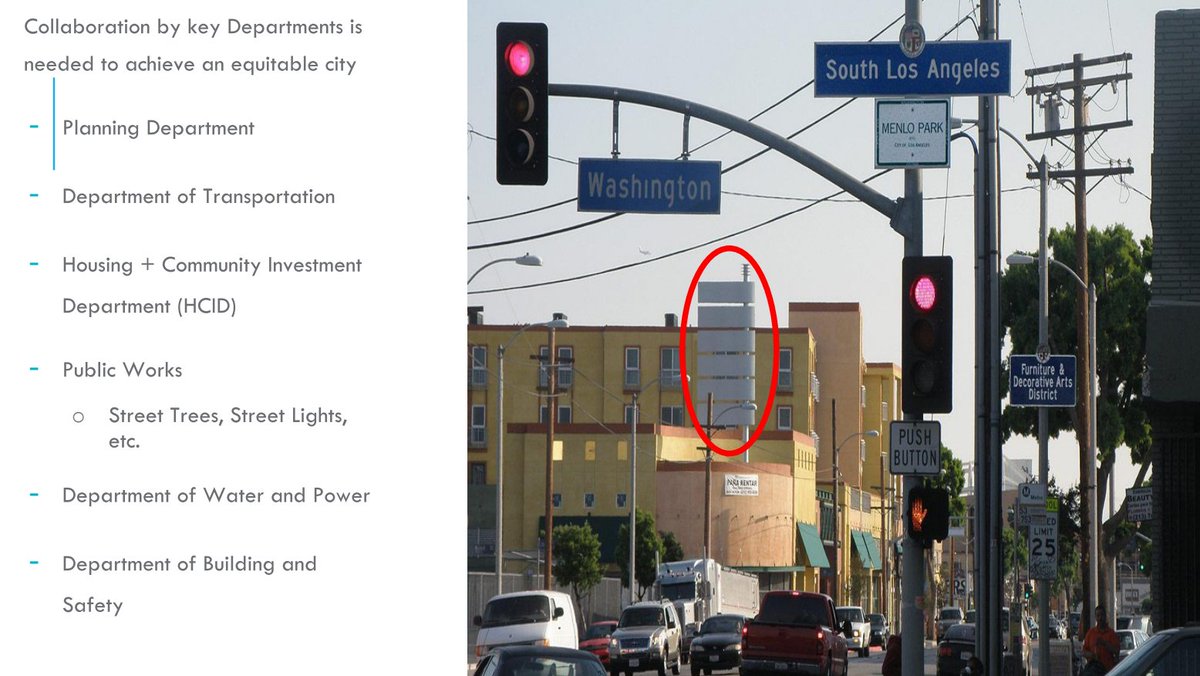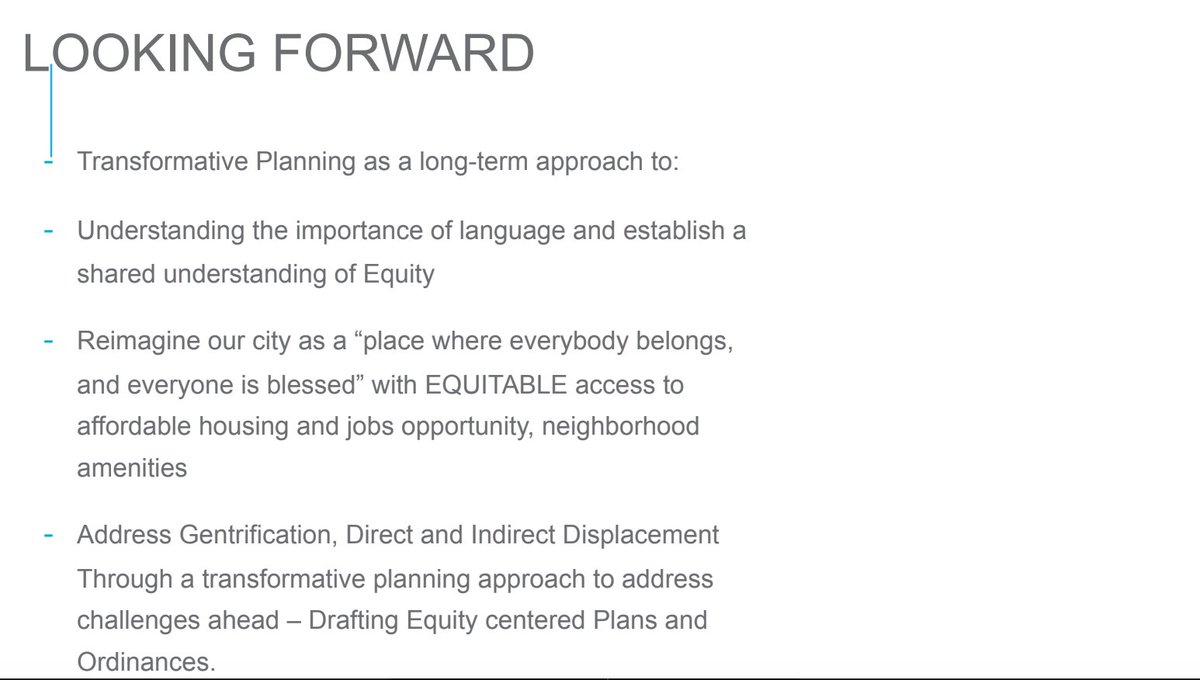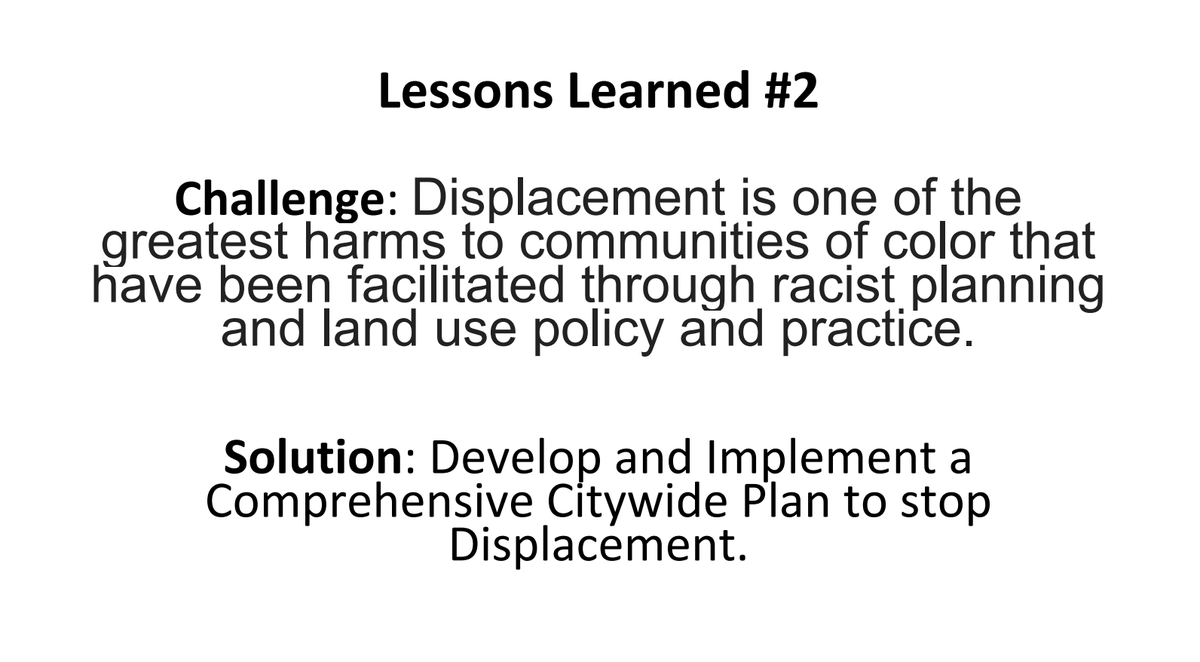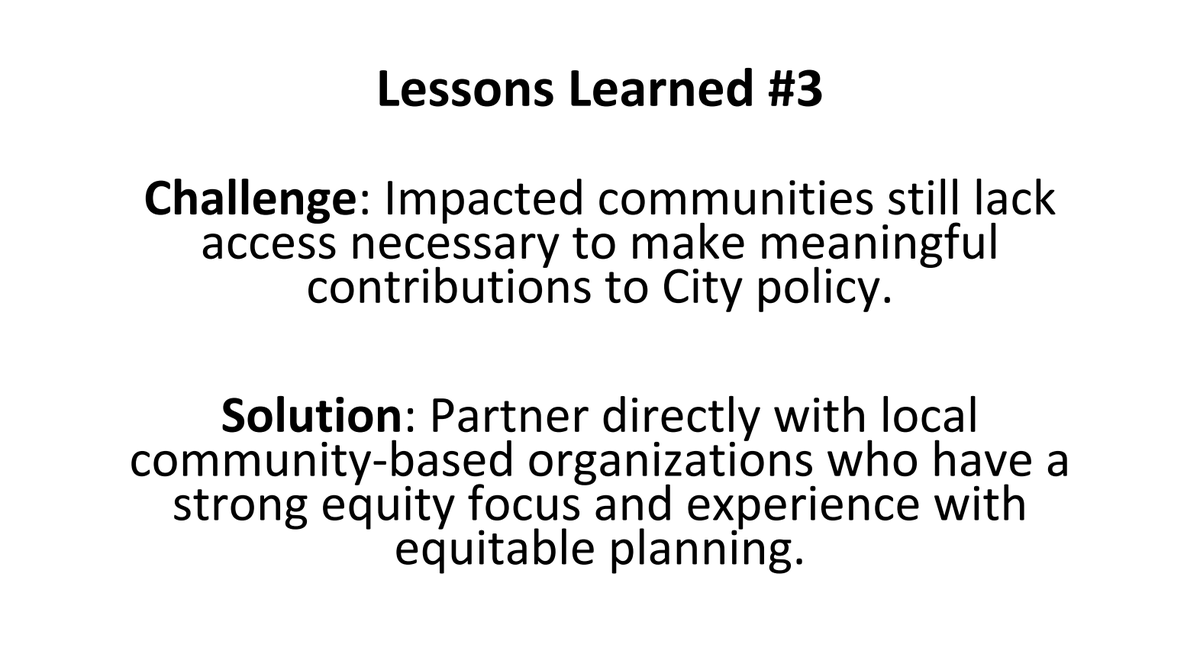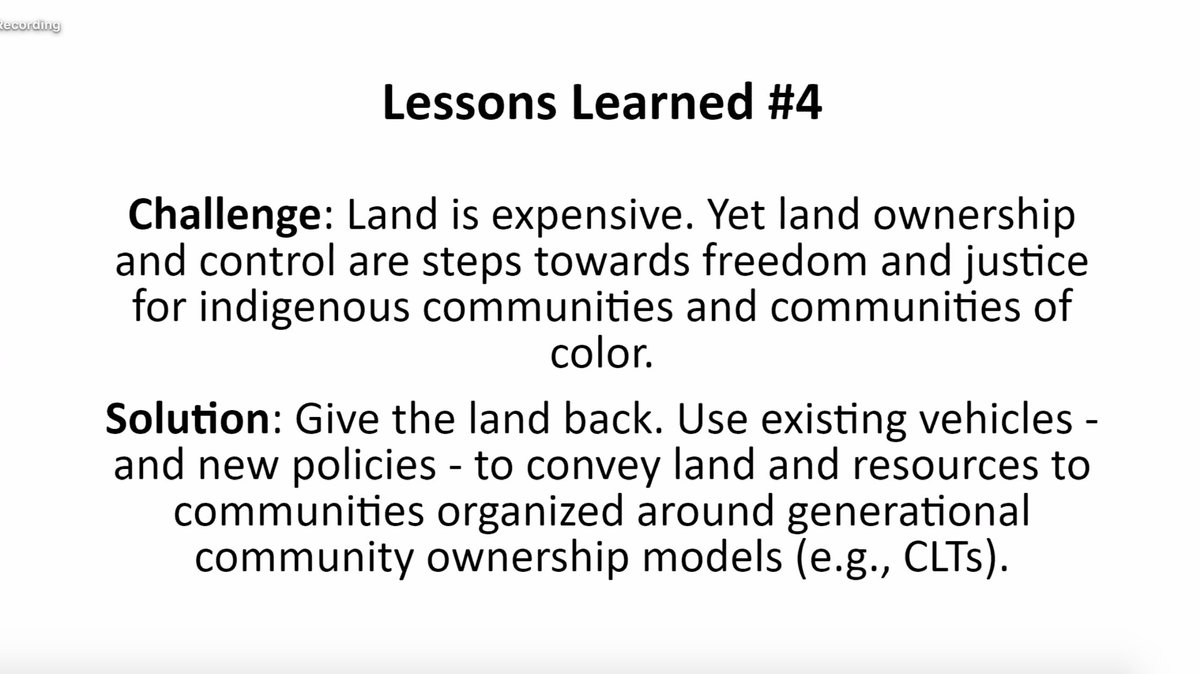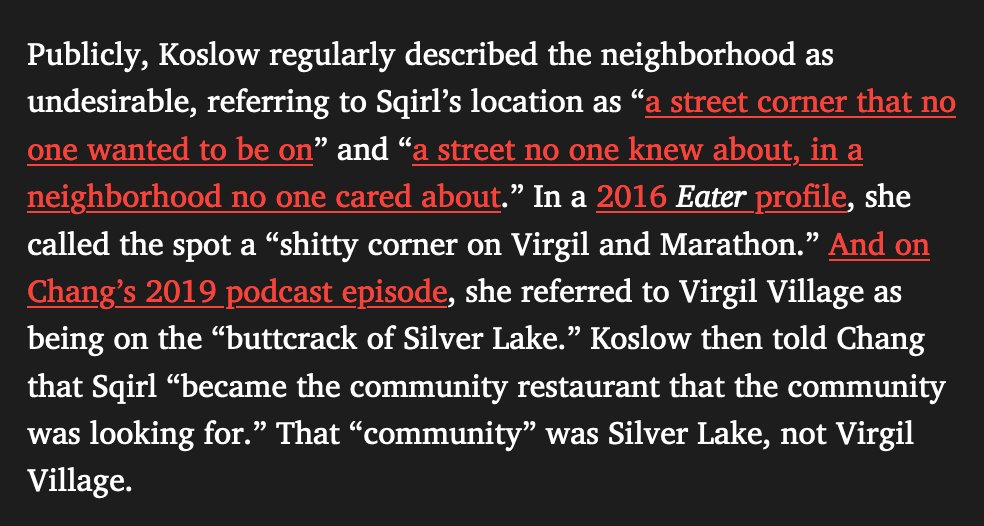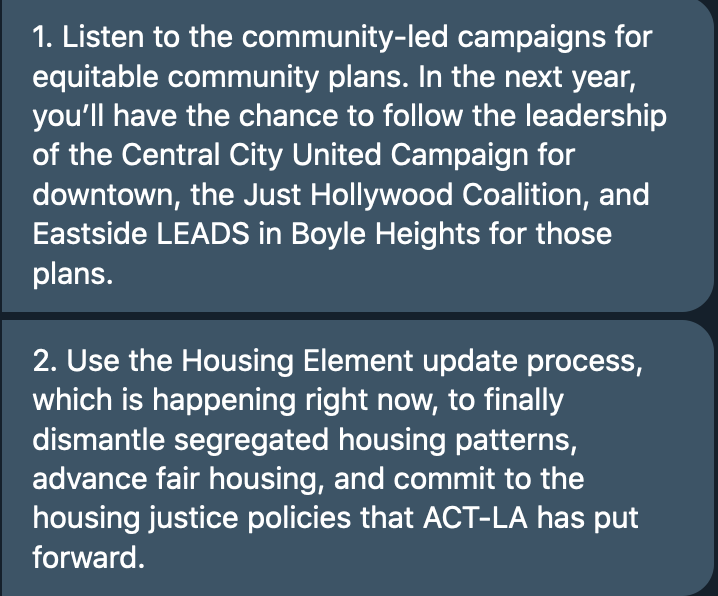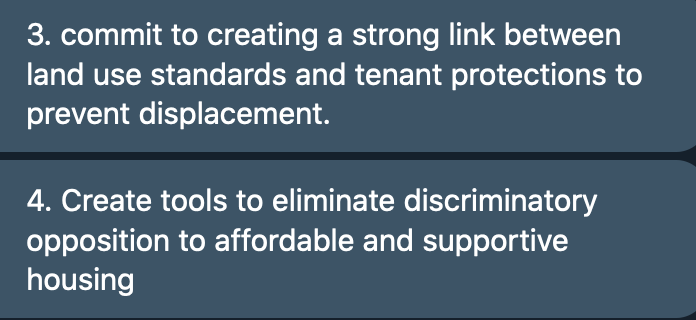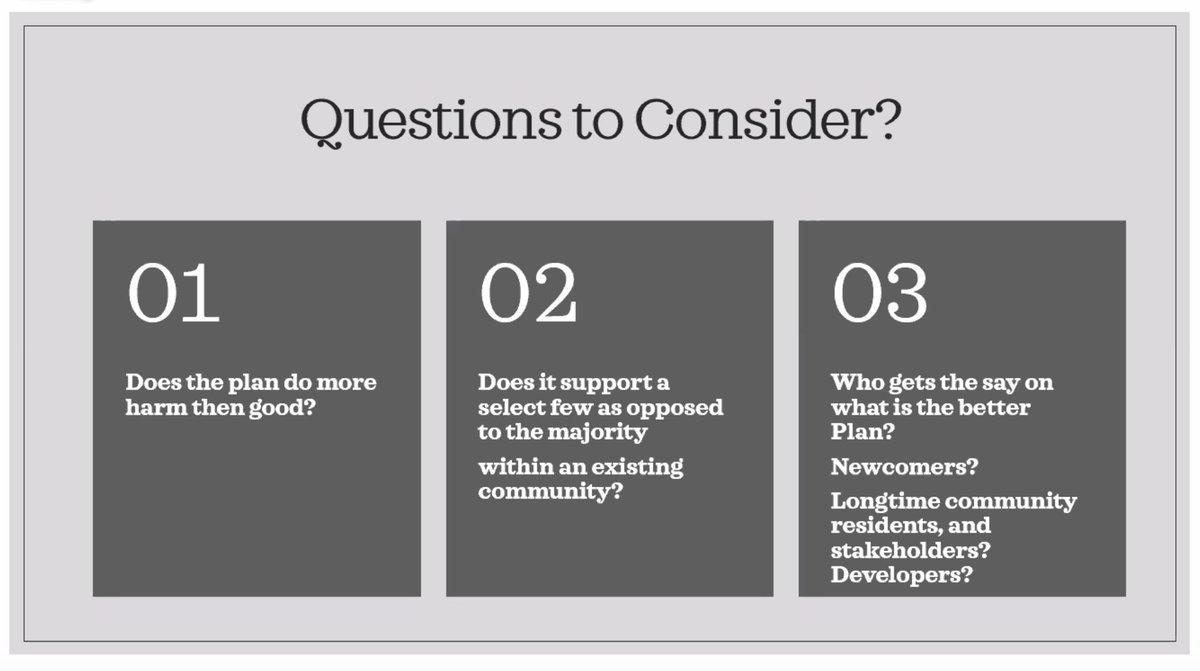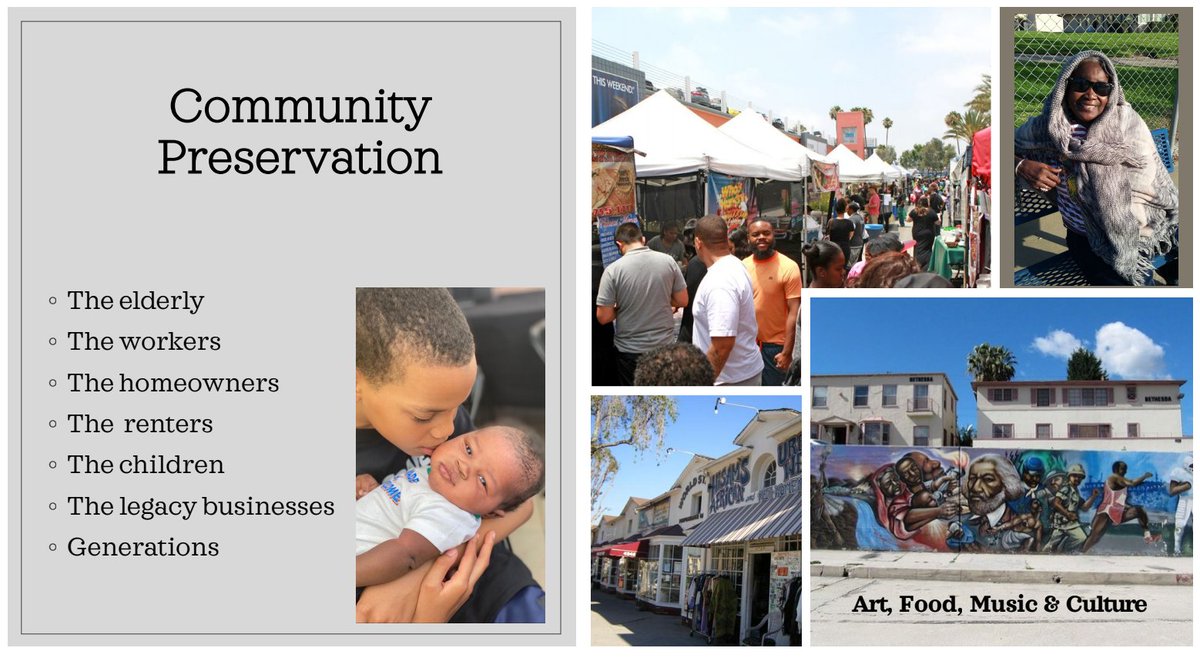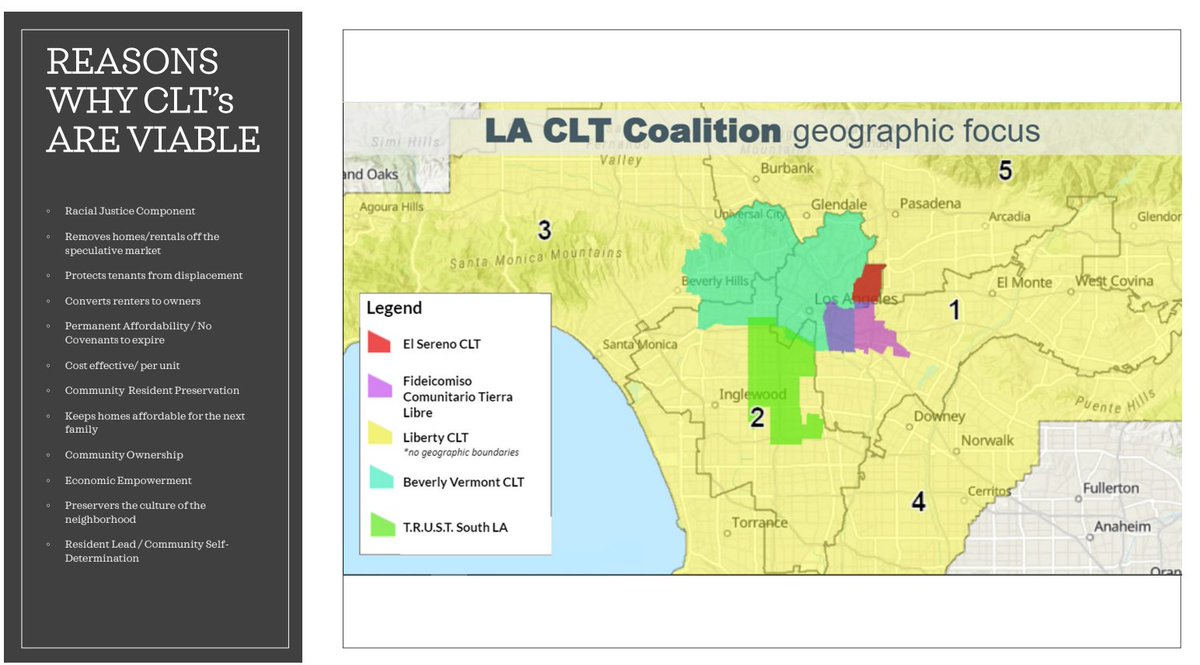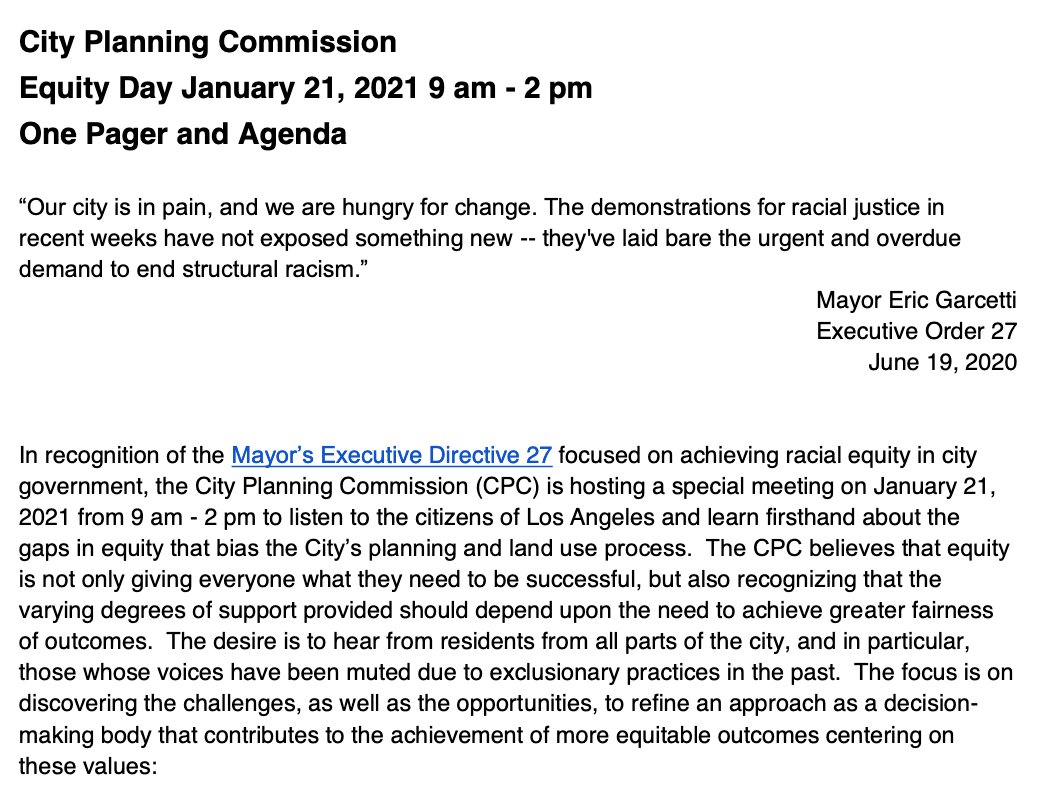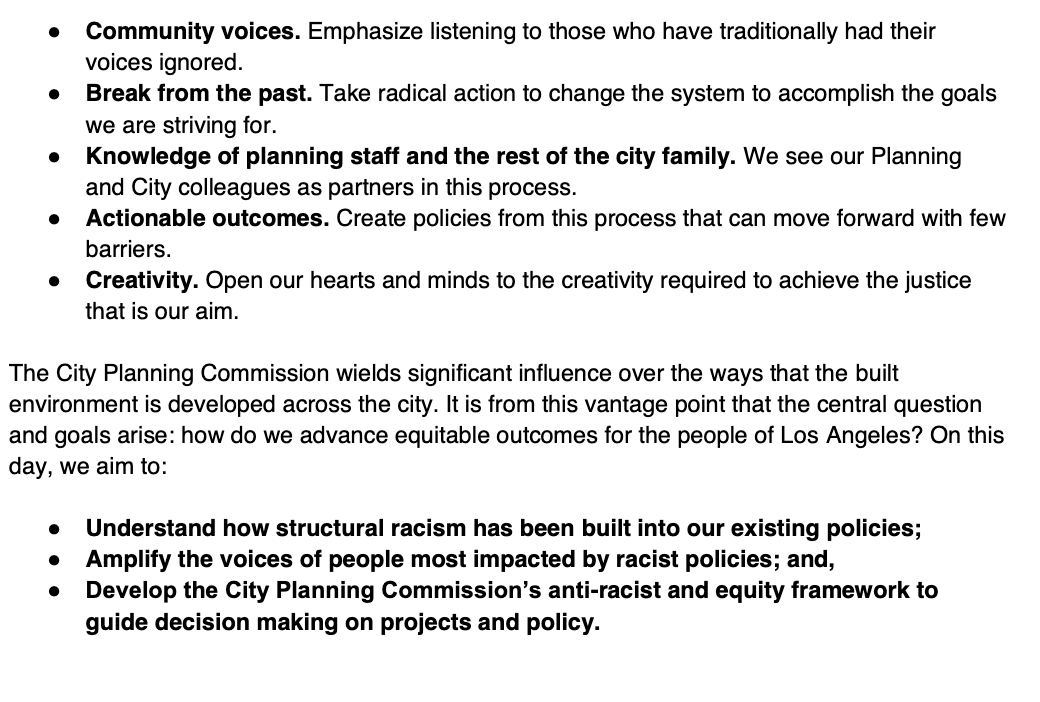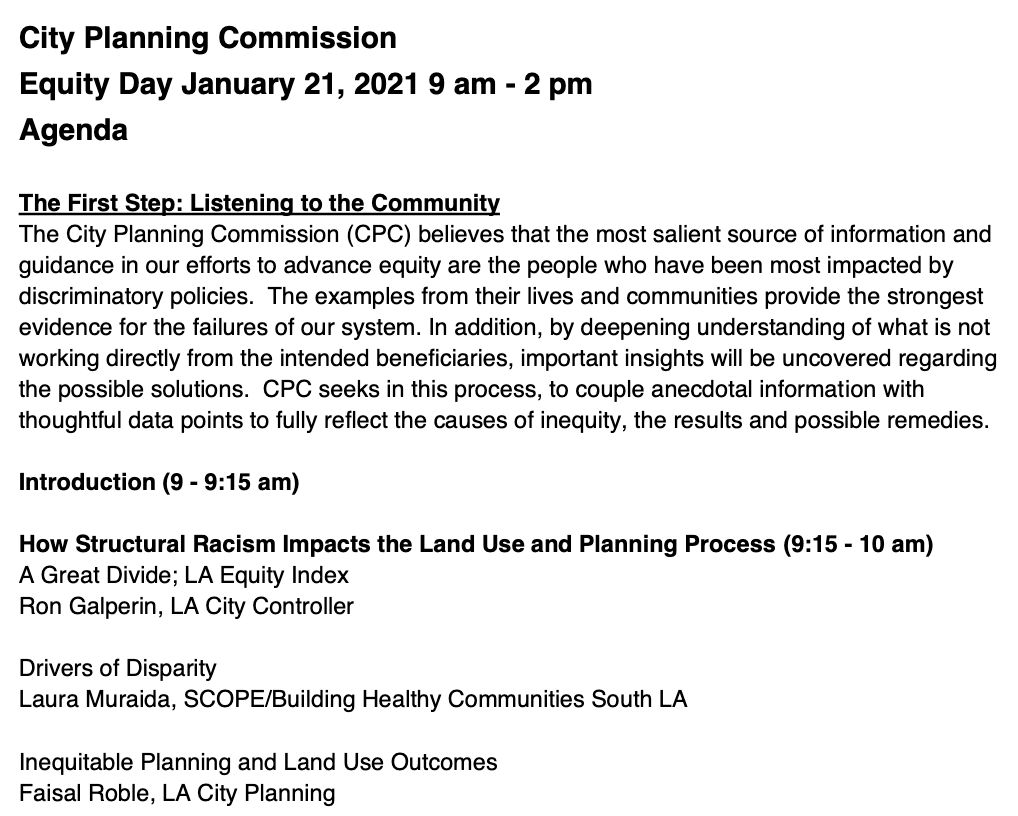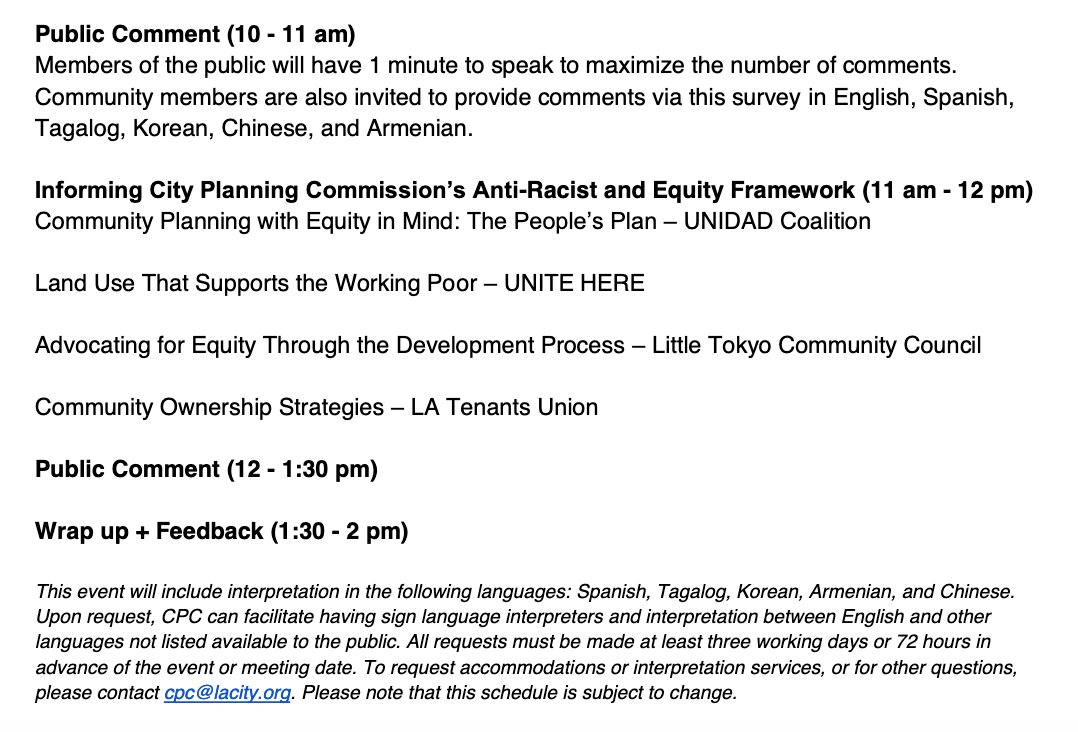the very first public comment was a #notallwhitepeople statement from Steve Sann who wanted credit for white people helping elect Tom Bradley to mayor back in the day. https://twitter.com/faizahmalik/status/1352306413796642817
folks have *1 minute* to offer comment on how their communities are being impacted by complex historical processes. which meant that Tim Watkins was cut off while talking abt Watts' challenges while white westsiders are calling in to complain about being gentrified by tall bldgs.
a woman calling from Crenshaw was trying to explain some of the ways which folks are being pushed out of the area and was cut off midway through.
it takes me 3000-5000 words to explain how the legacy of redlining impacts a specific project. the story about Nipsey, which digs into how that history impacted his life, was 10K words. one minute doesn't even begin to allow for that conversation. https://la.streetsblog.org/2019/08/15/nipsey-hussle-understood-cities-better-than-you-why-didnt-you-know-who-he-was/
What the Crenshaw woman was trying to get across is that Crenshaw is currently being flooded with market rate developments eager to take advantage of the arrival of the Crenshaw Line. https://la.streetsblog.org/2020/11/10/124-unit-project-at-4242-s-crenshaw-approved-by-city-planning/
With the area AMI being less than half of the L.A. AMI (the figure against which min-max incomes are set for access to the affordable units included in these TOD projects), even the affordable units are out of reach of many of the area's residents...helping drive gentrification.
What I'd really like to see the CPC grapple with/establish is some kind of human-centered CEQA.
At present, we have no way to formally incorporate consideration of the costs of disinvestment and disenfranchisement into the conversation and decision-making around a project.
CEQA will help us protect the fossils underneath a site, and an EIR will dedicate pages to discussion of said fossils, but we have no mechanism by which to contemplate the fate of the folks who live next door to it.
In communities where folks have consistently bn denied ownership over their streets and public spaces & denied loans that would help them get ownership of their homes and businesses, we need to be able to ask if a project makes those folks' footholds in the area more precarious.
And not just their physical foothold. Gentrification is a process - a culmination of visual, cultural, economic, and social forms of erasure and displacement that may (or may not) result in physical displacement at some point down the line.
When the Reef project first went before the CPC and folks tried to make those kinds of points, they were promptly smacked down by city planning staff, who scoffed that b/c there was no direct displacement, the community had no reason to be concerned. https://la.streetsblog.org/2016/11/22/what-constitutes-good-development-luxury-reef-project-approved-over-south-central-residents-fears-of-displacement/
Re: erasure. Reps for the "creative habitat" opened their presentation to 600+ residents at a town hall by saying the #1 thing they'd learned from engaging residents was that Historic South Central was “lacking a sense of place.” It went  hill from there. https://la.streetsblog.org/2016/06/14/jobs-or-housing-historic-south-central-residents-decry-feeling-asked-to-choose-by-billion-dollar-reef-project/
hill from there. https://la.streetsblog.org/2016/06/14/jobs-or-housing-historic-south-central-residents-decry-feeling-asked-to-choose-by-billion-dollar-reef-project/
 hill from there. https://la.streetsblog.org/2016/06/14/jobs-or-housing-historic-south-central-residents-decry-feeling-asked-to-choose-by-billion-dollar-reef-project/
hill from there. https://la.streetsblog.org/2016/06/14/jobs-or-housing-historic-south-central-residents-decry-feeling-asked-to-choose-by-billion-dollar-reef-project/
None of this is to shade the CPC for their equity day effort. This is a huge step forward and a welcome one. https://planning.lacity.org/about/cpc-equity-day-2021
And while I was typing all this out, Commissioner Samantha Millman broke in to say she understood that folks were struggling to get complex points across in such a brief comment window and they would possibly hold a future forum to solicit more feedback.
But it was deeply disheartening to hear Faisal Roble (Chief Equity Officer for L.A. City Planning) give a solid presentation looking at deeper structural roots of inequity and then immediately follow it up with these slides, implying these were ways to address those inequities...
This last slide followed those two and does speak to those deeper issues, but really needed to be the starting point of the conversation, not an end note. Find his and other presentations here: https://drive.google.com/drive/folders/1VWPQ2j01dtKQyhQ7O41-hwPKRQHigbuR
Case in point, Richelle Callies called to say that at a recent community mtg on the Rail-to-River project she'd asked how the project would be sure to hire local Black folks from the community to ensure they benefited from it (instead of it being an amenity that pushed them out).
She says she was told by the meeting ldrs that the Black folks in the area did not have the skills. She was upset both by anti-Blackness of that and the seeming lack of any explicit effort to make a project an investment in both the environment *and* the people, which it must be.
[FWIW hers is not a new concern. I've been asking that and similar questions about how local folks will benefit for years now and getting no answers, either. The project was supposed to break ground 3yrs ago.] https://la.streetsblog.org/2019/12/20/rail-to-rail-bike-ped-path-along-slauson-delayed-but-moving-forward/
Next up are some of the folks from the community who have been in the mix on these issues for a long time. Joe Donlin from @SAJE_ShiftPower says to the city in brief: THE HARM IS IMMENSE. COMMIT TO FIXNG IT. Other points made:
One of the things Grant Sunoo from Little Tokyo Community Council pointed to was the need to protect legacy businesses - ones that are culturally relevant, serve the community, and actively work to serve lower-income residents in particular.
The disappearance of Chinese grocery stores from Chinatown, he said, as an example, has forced transit-dependent elderly Chinese residents to travel farther to get goods they need or go without.
When community-serving businesses like that are replaced by artisanal yoga etc spots, it isn't just about the loss of a familiar space/foods. Having to travel farther to get needs met can strain the budget of folks whose incomes are already stretched too thin, for ex.
Even more so if those businesses once extended credit to families because they had such a long history in the community. Or the place in question was a health clinic or resource that enhanced community well-being.
When that spot is replaced by a place like Sqirl, and the owner has the kind of disdain that owner Jessica Koslow did for the neighborhood, that also translates to the environment around the place, and the community knows they aren't welcome or valued. https://thelandmag.com/beyond-moldy-jam-the-inside-story-of-what-went-wrong-at-sqirl/
Honestly someone needs to tell Steve Sann this day isn't about him. He was the very first caller of the day, wanting to make sure wypipo were thanked for their contributions. Now he's pretending to care about equity in order to keep TOC out of rich nbhds. https://twitter.com/sahrasulaiman/status/1352320057066471424
It's frustrating to hear the always brilliant @DougSmth getting cut off during his comment, but I believe I heard his new baby cooing in the background. So that was nice.
The first 2 pts he got out were that the revamping of the planning process must be comprehensive: e.g. listening to communities during the community plan processes & using the Housing Element update process to dismantle drivers of inequity embedded there. https://planning.lacity.org/blog/shape-next-los-angeles-housing-element
"We are up for grabs...and we need you to hear us," says a woman from Crenshaw who is alarmed by the developments she's seeing along the corridor which are clearly not meant to serve the existing community.
Assata asks about racism within the department and how folks that have worked against them all these years can be trusted to understand equity or have the capacity to ID the community's real needs and interests and formulate an approach that puts them front and center.
Just jumping back up in the thread to points made by Doug Smith and added to by @faizahmalik, both of Public Counsel:
Doug put together a thread on how/why the community plan process is important tool: https://twitter.com/DougSmth/status/1336470326004178946
They're wrapping up the meeting now. Public comment has ended. Samantha Millman (CPC President) said this was important day in terms of just how much information they were given to work with, but also impossible to respond to without digesting it.
Millman thanks the community for tuning in and acknowledges that too often they are limited both in time and in the tools at their disposal to make the change communities would like to say, but that they will continue to listen. [~200 ppl were still tuned in til the end.]
I didn't get to tweet about all the presentations. Zerita Jones, for ex., spoke about the land grabbing along Crenshaw, the way it's squeezing folks, and ways to push back.
Find the full set of presentations here: https://drive.google.com/drive/folders/1VWPQ2j01dtKQyhQ7O41-hwPKRQHigbuR; Below is what today's plan was: https://planning.lacity.org/odocument/b9e48f02-db33-4e31-b31a-d17c01f41ef2/CPC_Equity-Day_2021_Full_Agenda.pdf

 Read on Twitter
Read on Twitter